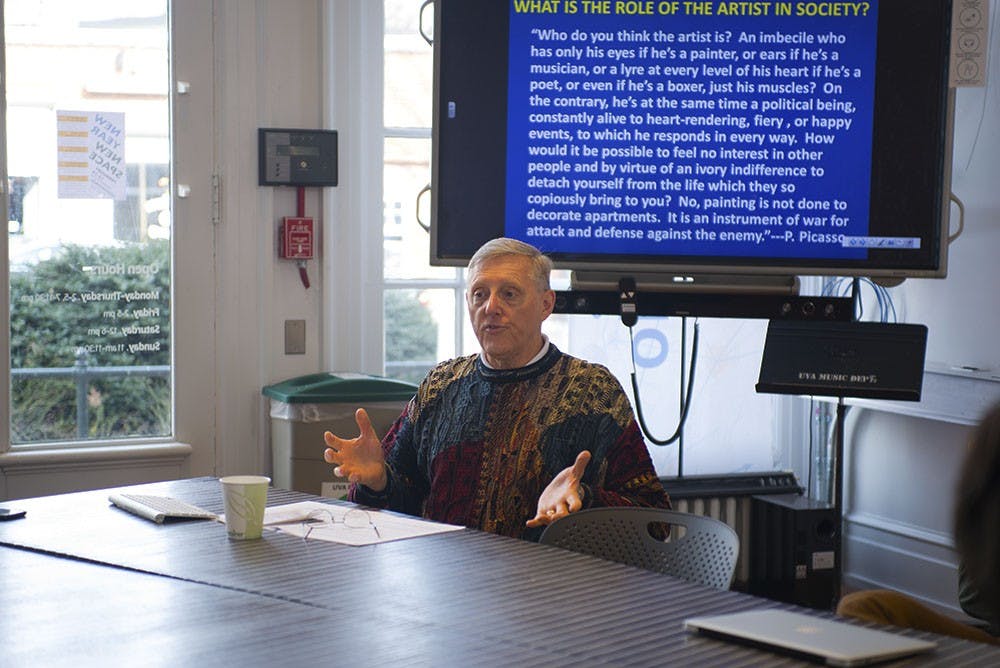Politics and Public Policy Prof. James Savage led an OpenGrounds discussion Thursday on how art functions as political commentary. The discussion focused on the Jan. 7 attack in which 12 people were killed and 11 others were injured in the Paris office of satirical magazine Charlie Hebdo.
Discussion centered on issues of free speech and the responsibilities of artists in an increasingly interconnected world. Savage said such interconnectedness can bring greater potential to offend certain populations.
“We live in an extremely visual age where cartoons can be transported in an instant,” Savage said. “The sensitivities of many people can be aggravated by controversial images. The conflict between what is permissible and what is not will continue.”
The talk focused on France both before and after the Charlie Hebdo attack as well as some of the cultural undercurrents which led to the incident. Religious Studies Asst. Prof. Ahmed al-Rahim said he sees parallels between the treatment of African Americans in the United States and North Africans in Europe, and that he sees this treatment as a driving force of cultural tension.
Al-Rahim said he was disappointed by the response to the Charlie Hebdo attack and its similarity to previous responses to terrorist attacks.
“At least in terms of the French response, I am disappointed as it is similar to the U.S. response after 9/11, where war was declared against radical Islam,” al-Rahim said.
Al-Rahim said he does not see terror groups as an ideological foe — like a national Communist state or party — and feels they ought not to be viewed in such a light.
Attendees also discussed problems accompanying absolute free speech, citing the Charlie Hebdo massacre as an example.
Third-year Commerce student Shivin Agarwal said the United States is very liberal in terms of institutional free speech but feels speech is still limited by a number of cultural taboos.
“Western society has a very hypocritical mind frame — attacking non-American ideals is okay, but being anti-American is not,” Agarwal said. “There’s a distinction between what the government says you can say, and what society allows you to say. Political correctness is very important in the U.S.”
OpenGround event planner Juliana Echeverri, a Batten graduate student, said this was the first open table discussion this semester. These programs are invite-only events which seek to bring a wide range of ideas together, she said.
“The goal is to incentivize collaboration within the community,” she said.






